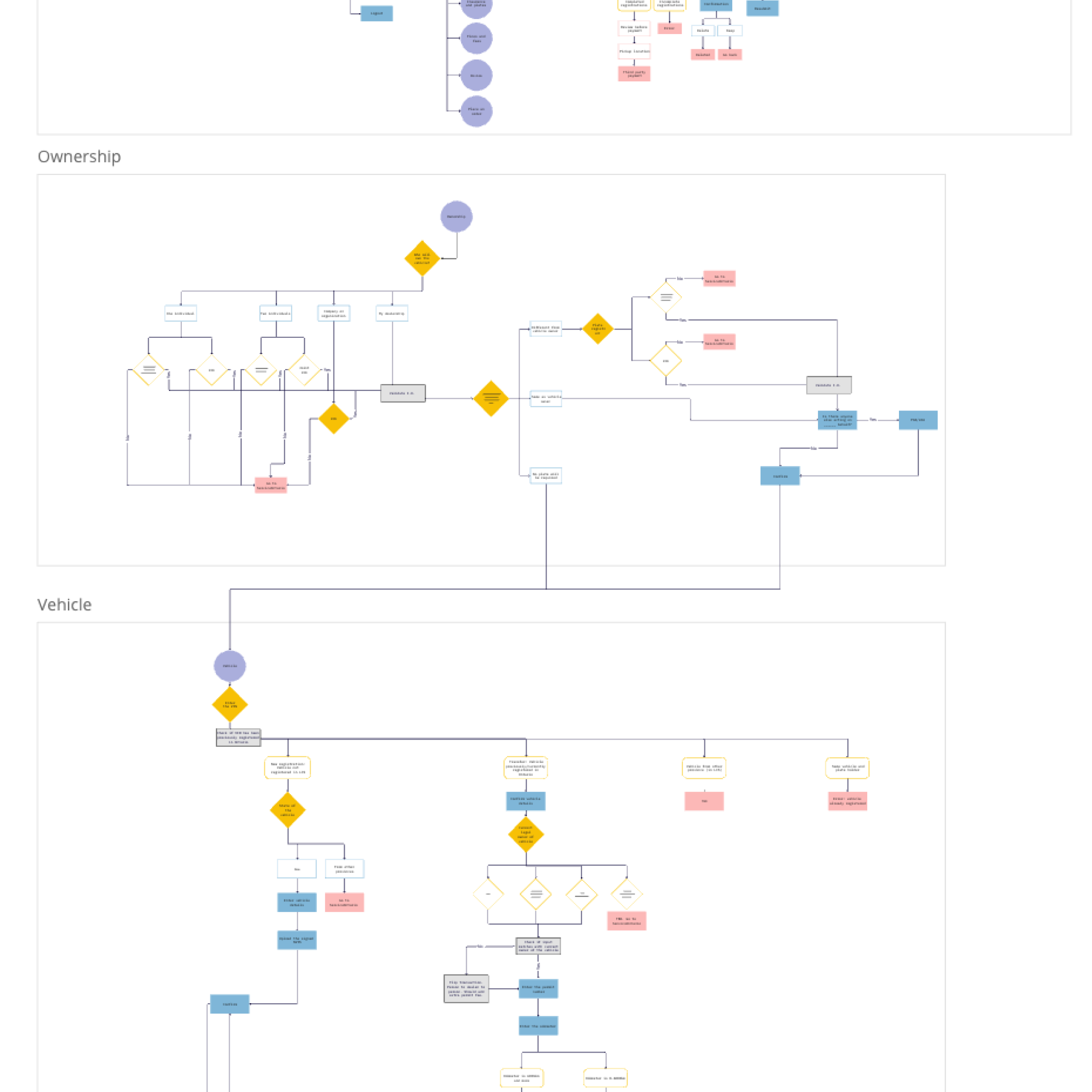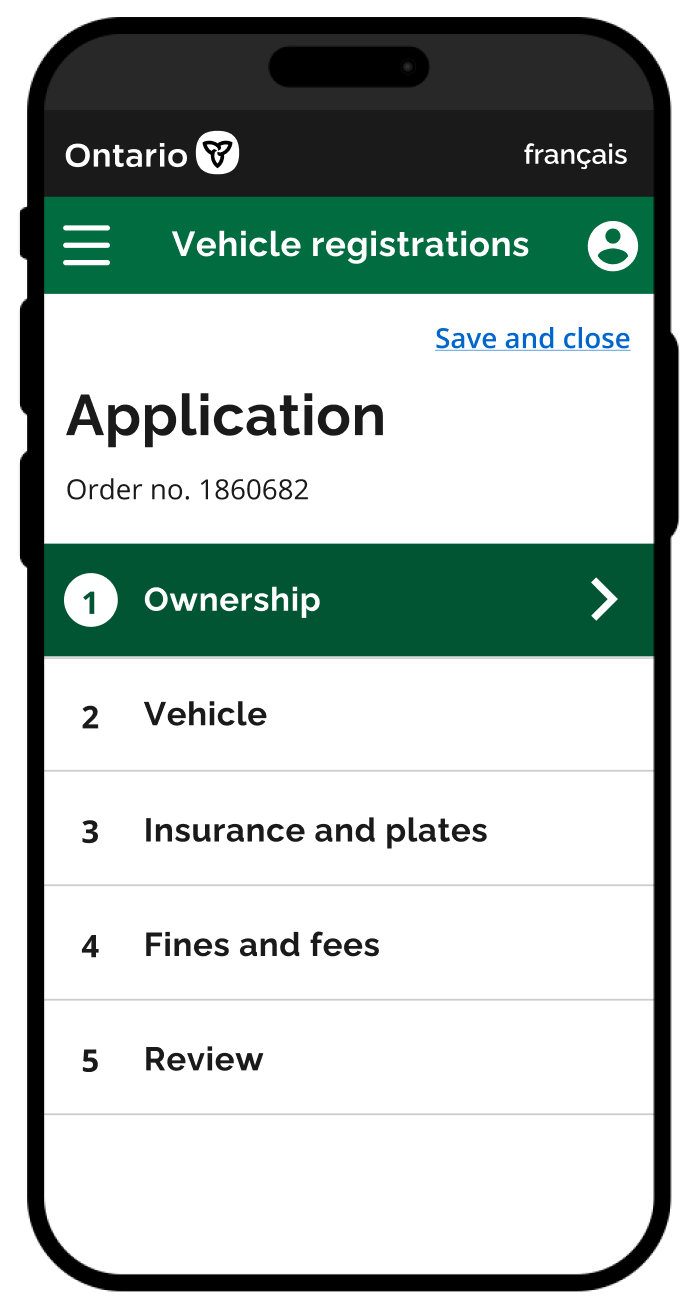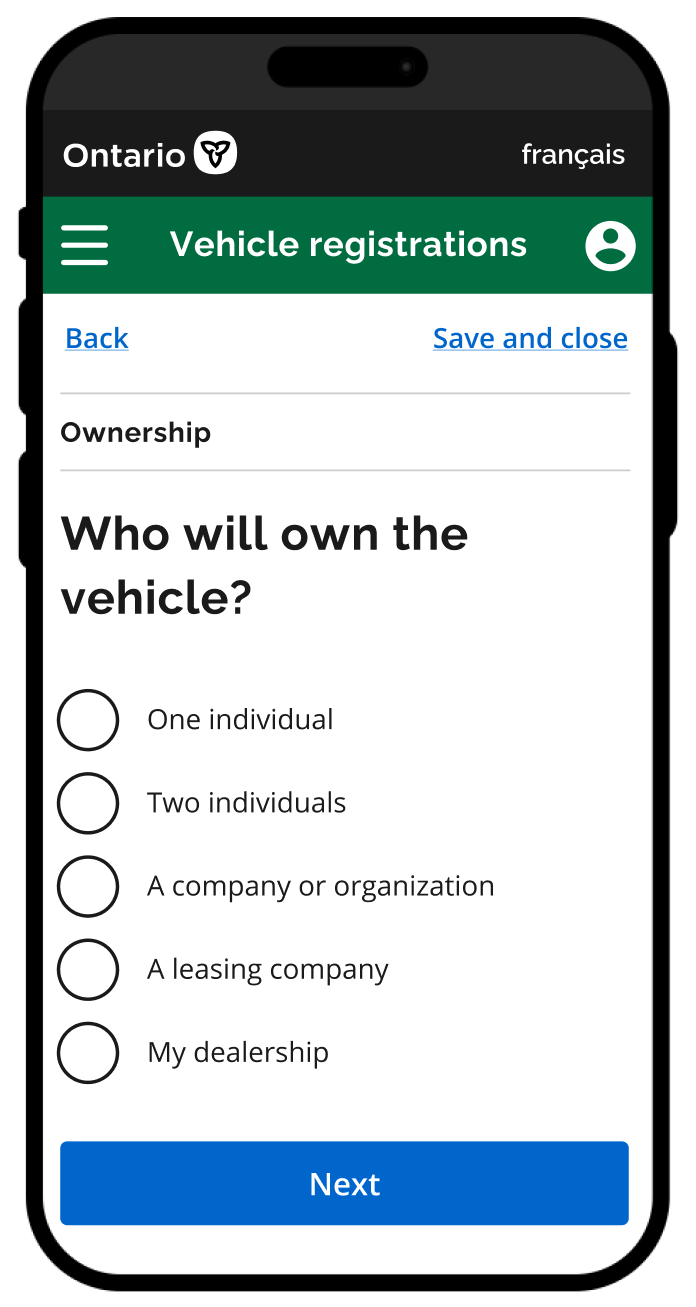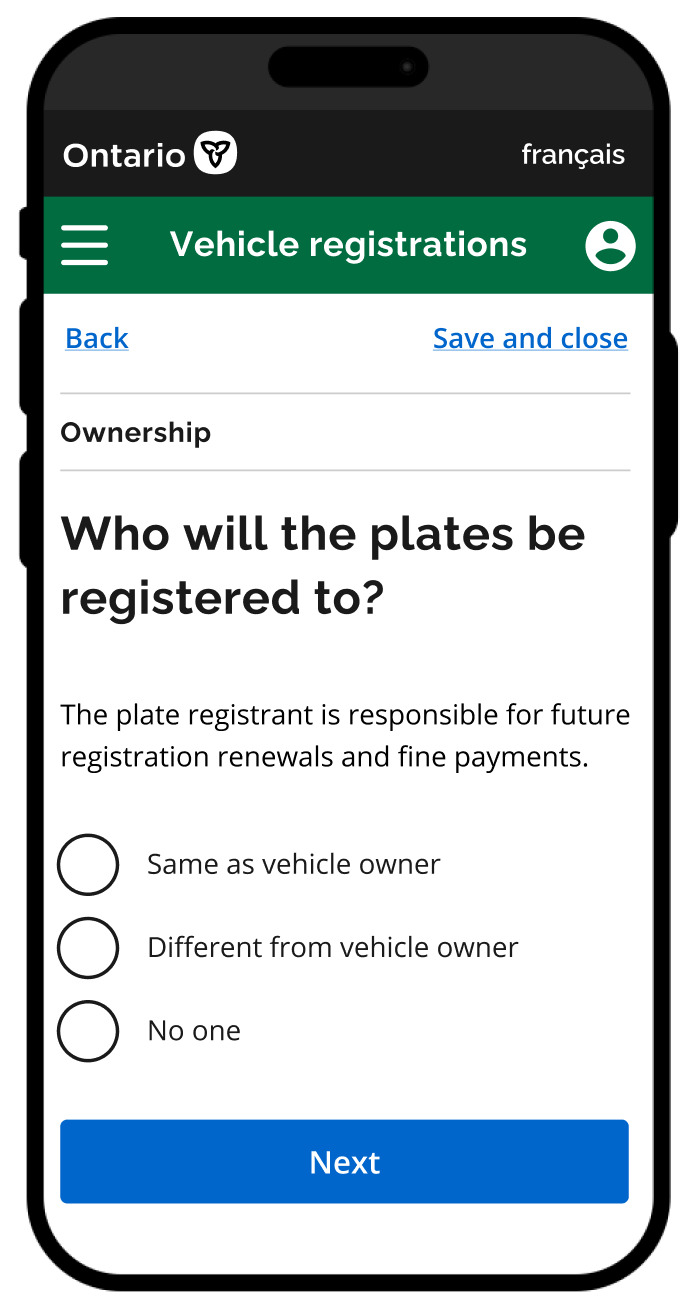Purpose of registration
All vehicles driven on Ontario roads must have registered licence plates and ownership documents. Registering a vehicle allows government of Ontario to know the:
- person(s) who owns the vehicle
- person(s) responsible for driving and operating the vehicle
- identity and state of the vehicle
The government uses this information to protect citizens, enforce laws in Ontario and North America, and fix the roads by collecting money from the people who use them.

A shift to digital for dealers in Ontario
Certified dealers can register vehicles on behalf of their customers in Ontario, according to OMVIC.
Dealers registered new vehicles in 2019. The rest were general population.
Dealers helped transfer ownership (from buying, selling, or leasing used vehicles) in 2019. The rest were general population.
The process of registering vehicles has traditionally been paper-based. Dealers would need to:
- fill in paperwork properly to avoid delays in vehicle delivery.
- visit ServiceOntario frequently to drop off paperwork and pick up plates and permits.
- spend a lot of time on the road.
- wait a long time at ServiceOntario if the office is busy.
Shifting to digital processes would help dealers:
- reduce travel time to and from ServiceOntario.
- confidently submit the required information with ease.
- discover blockers that may impact sales early in the process.
Interviews with dealerships
We conducted interviews to understand how different dealers license vehicles on behalf of their customers.
Dealership types
Dealership experience survey
A survey was sent out to registered dealers to evaluate if insights from qualitative research were statistically significant.
Respondents completed the survey from different areas of Ontario.
Had five employees or less. Less than 2% of dealerships had 100 employees or more.
Dealerships sold new cars with higher volume of sales compared to used cars.
Customer experience survey
To understand the end-to-end experience, a separate survey was sent to customers who have purchased a vehicle from dealerships in the past 3 years.
Customers completed the survey from different areas of Ontario.
Said their dealers completed their registration paperwork.
Bought passenger vehicles. The rest bought large SUVs or trucks for personal use.

Customer wait time from purchase to vehicle delivery
Reasons

- Getting ownership and licence plates are the most common reasons for wait times.
- When wait times were longer than 2 weeks, it was usually because the dealership didn’t have the vehicle in stock.
- 8.8% of customers were dissatisfied with their wait times.
How often could dealers immediately deliver vehicles if registration was not an issue?

Frequency
Majority of dealerships said they could provide immediate delivery if licensing was not an issue.
Summary of personas
From our research, we were able to get an overview of the users’ background, goals, pain points and motivations. 3 main personas we identified were:

Tracy
Licensing coordinator
- Developed processes and learned how to license through experience over time.
- Registers high-volume vehicle sales daily.
- High organization, time management, and contract literacy skills.
- Has long term rapport with ServiceOntario staff.
Photo by Maria Lupan on Unsplash.

Drew
Business manager
- Any process that doesn’t make profit is troublesome.
- Loves selling and finds the licensing process an inefficient use of time.
- Relies on licensing coordinator for most deals, but may occasionally register vehicles himself if needed.
Photo by Tamarcus Brown on Unsplash.

Bob
Owner of a small dealership
- Is involved in all aspects of the business.
- Wants to minimize the time he leaves the dealership because he’s the main person watching the shop.
- Finds the licensing process tedious with greater concern making his customers wait.
Photo by engin akyurt on Unsplash.
Many paper forms and duplicate asks
We discovered that there could be up to 11 files that dealers need to provide per sale. Within the 11 files, there are many possible variations of submitting paperwork depending on the circumstance.
Here’s an overview of the most common form fields and how often we ask them across multiple files:
-
Form field
File count
Duplications
-
Name
6
11
-
Address
5
9
-
Driver’s licence number
3
5
-
Date of birth
3
5
-
Signature
4
6
-
Plate number
2
6
-
Dealer number
3
4
-
Vehicle identification number (VIN)
3
4
-
Odometer
4
5
-
Date
5
8
- and more...

Reimagine data structure
We prototyped what the information architecture would look like for dealers to submit vehicle registration online.

Prototyping a simpler, faster, better licensing process
Each step of the application process was written in plain language, asking only necessary questions once. This enhanced comprehension, reduced likelihood of errors, and saved time for dealers.




Takeaways
We benefited a lot working in agile way, as it helped us adapt quickly and develop in small increments. Beyond the digital experience, this project revealed many opportunities for improvement in:
- operational policies
- environmental impacts
- security compliance
- data management
- employee experience
This project was transitioned to a different team from ServiceOntario, where they were responsible in rolling out the shift from paper to digital process.
Launched in March 2022, the Digital Dealership Registration program was first made available for new vehicle registration, then for trade-ins and then for used cars in 2023.
Press release

Ontario Expanding Self-Serve Online Vehicle Registration
2023

Ontario Making Car Registrations Easier and More Convenient
2022